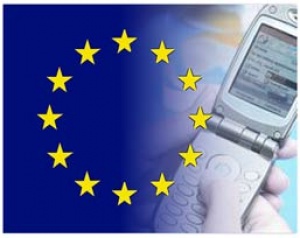Mobile roaming charge protection for travellers comes into force

From 1 July 2010 consumers no longer need to worry about accidentally running up huge bills when they connect to the internet using mobile networks via a phone or computer when abroad in the EU. Thanks to the EU’s roaming rules, from 1st July travellers’ data-roaming limit will be automatically set at €50 excluding VAT (unless they have chosen another limit - higher or lower). Operators will have to send users a warning when they reach 80% of their data-roaming bill limit. The operator will have to cut off the mobile internet connection once the limit has been reached, unless the customer has indicated they want to continue data roaming that particular month. In addition, maximum wholesale prices for data roaming will fall from €1 to 80 cents per MegaByte. The maximum price for making a roaming call will be cut to 39 cents per minute (excluding VAT), instead of the current 43 cents, while receiving a call will cost a maximum of 15 cents per minute (excluding VAT), instead of 19 cents. The cost of making and receiving calls when abroad in the EU will now be 73% cheaper than in 2005, when the EU first started to tackle excessive roaming charges (IP/05/901).
Commission Vice-President for the Digital Agenda Neelie Kroes said: “There will be no more bill shocks for tourists or business travellers surfing the internet with smart phones or laptops while in another EU country. The EU is also cutting the cost of roaming calls for travellers. I am determined to make the EU’s telecoms markets more competitive.”
Data roaming
The EU’s 2009 Roaming Regulation (N° 544/2009) required mobile operators to offer their customers, as of March 2010 (IP/10/215), the possibility to set their own monthly cut-off price limit for data roaming via mobile phone or a computer. From 1st July 2010, if customers have not chosen a different cut-off level, operators will have to impose a monthly default cut-off for data roaming of €50 excluding VAT. For non-eurozone countries, the amount will be calculated based on the exchange rate published in the EU’s Official Journal as of 1 June 2010. These measures mean that users will no longer receive massive bills (potentially thousands of euros) because they downloaded music or watched videos on their phones or computers while in another Member State without being aware of the cost. As an example of the problem, in 2009, a German traveller downloading a TV programme while roaming in France faced a bill of no less than €46 000. In another recent example, a UK student was reported as receiving a bill of almost €9 000 for data roaming during a single month while studying abroad.
Under the Regulation, operators must send their customers a message informing them about the data roaming tariffs every time they enter another EU country. Operators must also send customers a warning alert once they have reached 80% of their specified limit. Messages can be sent by text message, e-mail or with a pop-up window on computer screens, whichever way the operator chooses and according to the device being used.
ADVERTISEMENT
In addition, the maximum wholesale prices for data roaming allowed under the Roaming Regulation are cut as of 1st July from 1 euro to 80 cents per MegaByte (MB) of information uploaded or downloaded. Next year, the price will fall further to 50 cents per MB.
Roamed voice calls
The maximum retail prices (excl. VAT) for roaming calls will also be reduced. They will fall by nearly 10%, from 43 cents to 39 cents per minute for calls made and by more than 20% from 19 cents to 15 cents per minute for calls received.
Finally, receiving a voice mail message while roaming will become free of charge, but consumers will continue to be charged for listening to their voice mail messages. Prices for sending short text messages will remain at 11 cents per message.
Member States’ national telecoms regulators must ensure that mobile phone operators comply with the new rules on data roaming and the lower prices of voice calls. Consumers can contact the national regulator in the Member State where their mobile operator is based if they have any problems or questions about the new limits.
Background
The EU’s Council of Ministers and the European Parliament, acting on a proposal from the European Commission, first introduced caps on roaming prices in 2007 (IP/07/870), ensuring that mobile phone subscribers pay similar roaming tariffs across the EU. In July 2009, they adopted revised rules that cut roaming prices further in instalments so that by July 2011 the maximum roaming charges would be 35 cents per minute for calls made and 11 cents for calls received while abroad (see IP/09/1064 and MEMO/09/309). The 2009 roaming rules will apply until the end of June 2012.
The Commission will present an interim report on the impact of the Roaming Regulation by the end of June 2010 and provide a full review of its functioning by 30 June 2011. In the 2011 full review it will assess how best to reach its objective, as outlined in the Digital Agenda for Europe, that the difference in tariffs between roaming and home-country mobile-phone calls should approach zero by 2015

